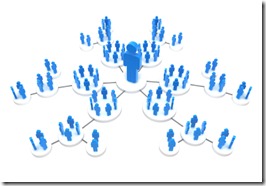by Dmitry Kirsanov
16. April 2012 16:00
 The Long Tail theory in Search Engine Optimization is a reflection of an older Long Tail concept which was developed in the middle of 20th century and which basically states, that you can either focus on a few very popular things or many unpopular, but the accumulated popularity of the latter, reinforced by higher specialization and increased diversity, will make it more stable investment of your money and time.
The Long Tail theory in Search Engine Optimization is a reflection of an older Long Tail concept which was developed in the middle of 20th century and which basically states, that you can either focus on a few very popular things or many unpopular, but the accumulated popularity of the latter, reinforced by higher specialization and increased diversity, will make it more stable investment of your money and time.
In other words, instead of trying to moderately please everyone, try to highly please few diverse groups of customers. If one product fails, it won’t become a catastrophe, because you have other products. And because the product is “aimed” at something special – be it function or group of customers, it will be considered “professional” even if it’s not better than more generic or more complex products.
More...
by Dmitry Kirsanov
30. March 2012 21:37

The problems of Search Engine Optimization are usually considered to be the problems of the marketing division of the company, and system administrators or software developers almost always have no clue when what they do causes significant troubles for website marketing.
Today we will talk about one of the biggest problems you may encounter in Search Engine Optimization – the content duplication problem, and what you, as web developer, system administrator or website owner, should do to prevent it.
More...
by Dmitry Kirsanov
27. February 2012 03:19
 When writing articles about SEO, it’s easy to fall into one of two categories. Either you will write something, that everybody knows, or something that is perhaps shouldn’t be revealed, as it will lose it’s value very quickly because of misuse.
When writing articles about SEO, it’s easy to fall into one of two categories. Either you will write something, that everybody knows, or something that is perhaps shouldn’t be revealed, as it will lose it’s value very quickly because of misuse.
So you don’t see many articles about the Search Engine Optimization here, mainly because I am trying to be original. However, I can’t count on everyone to study the subject and avoid traps, so part of my articles are like “Achtung, minen” sign for those, who focus on other areas of life than Informational Technology.
So, this article will be about so called Black SEO discipline named “Referral Spam”. What it is, how it works and why you should avoid it. More...
by Dmitry Kirsanov
15. February 2012 13:01
 How about to own the official page of your country? No less! Create a page of your country (or state, city, district – whatever is more relevant to your country) and place huge banners throughout the city claiming something like “We have X and Y and now we have the Facebook page! What are you waiting for, like us!”. Instead of X and Y you can place what your country is known foremost and what your people are proud of. More...
How about to own the official page of your country? No less! Create a page of your country (or state, city, district – whatever is more relevant to your country) and place huge banners throughout the city claiming something like “We have X and Y and now we have the Facebook page! What are you waiting for, like us!”. Instead of X and Y you can place what your country is known foremost and what your people are proud of. More...
by Dmitry Kirsanov
13. January 2012 05:45
 I thought about what some of my readers and other people said about the new feature of Google, called “Your World”, and all the concerns they had about it. The move was so smart, that it looks like Google outsmarted themselves. If to rephrase the saying “kill two hares with one shot”, the Google managed to kill the whole population of them.
I thought about what some of my readers and other people said about the new feature of Google, called “Your World”, and all the concerns they had about it. The move was so smart, that it looks like Google outsmarted themselves. If to rephrase the saying “kill two hares with one shot”, the Google managed to kill the whole population of them.
And you know, I hate myself for what I am about to write, because for some reason I think it will be the first shot at the Black SEO frontier of the Battle for Relevance, but hopefully I am exaggerating the problem and it’s only in my mind. I was thinking so when I was writing the first post, too. More...
by Dmitry Kirsanov
1. January 2012 00:00
 2011 was a year of great changes. For example, the SEO changed so much, that applying principles which were effective long time ago, would bring your website down. But surprisingly, the same we can say about the social networking. This post is about the dramatic changes I foresee in social networking in the year 2012.
2011 was a year of great changes. For example, the SEO changed so much, that applying principles which were effective long time ago, would bring your website down. But surprisingly, the same we can say about the social networking. This post is about the dramatic changes I foresee in social networking in the year 2012.
More...
by Dmitry Kirsanov
9. December 2011 13:37
How to make the URL of your page look more user-friendly or just make it self-explanatory? And anyway – look different from what it really is? In ASP.NET version 4 it’s easier than ever.
Why would we need that feature anyway?
It’s been quite popular trend in web development since the very beginning of dynamic Web – first, we didn’t want anyone to see the extension of our files, as this posed a security risk. Anyone, who could see that our page is actually an ASP page, would understand that you have Internet Information Server, which was considered “dangerous” at that time – not even because it was too bad, but because Windows NT 4 Server was user-friendly enough so people wouldn’t need to be MCSE in order to install and run web server. It wasn’t hard for Linux either, but Apache didn’t offer any dynamic contents out of the box. More...
by Dmitry Kirsanov
30. November 2011 09:19
ASP.NET engine is a wonderful thing. It does so much for you, that in the past could take ages and would earn you the title of demigod of Web Development. In some legacy languages, like PHP, it is still the case. For example, things like Localization and cross-browser support are very natural and automatic in ASP.NET, they don’t require any time or skills. You can add support of more languages, different output formats for date and numbers, add Ajax powered controls, caching, data access, perform various other high pilotage figures without thinking. I remember the time, when saving data between post-backs was an issue, and in ASP.NET it was solved by implementing the VIEWSTATE feature, which saves the state of page controls in one hidden field between submits - that feature alone worth a thousand words.
But ASP.NET comes to the rescue not only in obvious and direct ways - some features were introduced for one purpose, but perfectly helped in other areas. And one such area is Search Engine Optimization, or SEO. More...